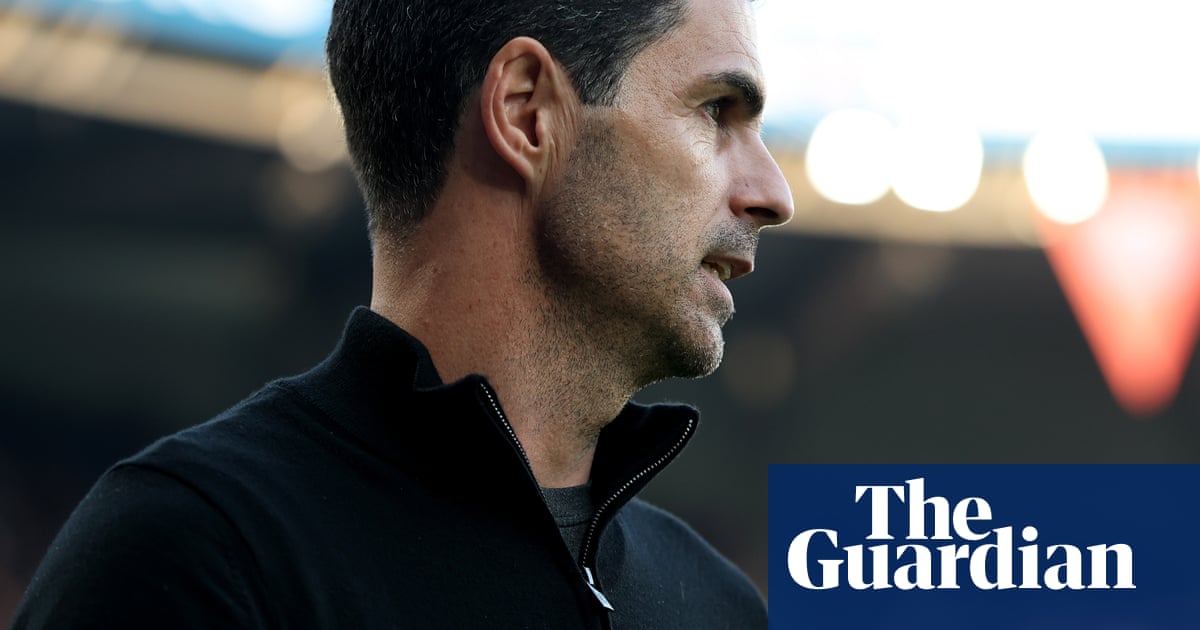For Mikel Arteta, there has been no time to dwell on the pain. “Not now,” said the Arsenal manager when asked if he was emotionally exhausted after a week when his team wereeliminated from the Champions League. “Probably because I have so much to achieve and do, and we need to improve and get done. That is what drives me every day,” he said. “But if there is somebody that has raised the standard and the expectation the highest, it has been me. Because I have been demanding and expecting much more, and after that much more.
“For me it is the only way to do it, for everybody to have really high standards and demands. We are very, very close to achieving it. I understand the disappointment, and the criticism. It is all part of it. At the end there is one winner and the rest of them aren’t going to win, so they need to reinvent themselves and do better. That is part of the cycle.”
It is a cycle that Arteta is having to get used to. After finishing as Premier League runners-up in the past two seasons to Manchester City, watching his players giving champions Liverpool a guard of honour at Anfield on Sunday will not be easy for the former Everton midfielder. Even if there was no rowing back fromthe conviction that his side had been superiorto Paris Saint-Germain over both legs of their semi-final, Arteta was honest to admit that his side have taken “a step backwards” in the league this year.
With qualification still not assured for next season’s Champions League,Arsenalneed to win their final three matches to reach 76 points – 13 points fewer than they managed last season and eight fewer than in the campaign before that. There is even a chance that Arsenal could end up with less than the 69 points they managed in 2022, when they finished fifth and failed to qualify for the Champions League.
“If it doesn’t hurt then it means you don’t love winning as much as I do,” said Arteta , going on to stress that extenuating circumstances have made it harder for Arsenal to match their previous two domestic points tallies: “You need to understand as well certain things that happened – it was impossible to try to aim to get the same kind of points. With the league there has been two main reasons: one is the amount of games and time that we have played with 10 men, and then the availability of the squad throughout the 38 games. It’s very, very difficult to manage and to have very strong performance consistently. We dropped a lot of points, we dropped a lot of points when we were ahead as well which is something that really needs to improve.”
Alongside injuries and ill-discipline, the elephant in the room is Arsenal’s requirement to sign a new striker in the summer. Arteta bristled when it was suggested that he hadn’t made it clear he had wanted to bring in attacking reinforcements in January afterGabriel Jesus was ruledout for the remainder of the campaign due to an anterior cruciate ligament injury, and one of the most important tasks facing the club’s new sporting director, Andrea Berta, will be deliver a top-class alternative. Sporting’s Viktor Gyökeres remains a more realistic target than Newcastle’s Alexander Isak, while Benjamin Sesko of RB Leipzig – who Arteta must surely regret not being able to sign last summer – is another option.
The fact Kai Havertz remains Arsenal’s top scorer in the Premier League with nine goals despite not having played since January is an illustration of where they have fallen short. Arteta pointed to the fact that his side scored more than 90 goals last season, which would usually mean “you have a high, high probability of winning the Premier League”. But their tally of 64 this season is less than Liverpool, City and Newcastle have managed, and there has been a clear over-reliance on set pieces, a source of goals which pretty much dried up after the turn of the year.
Another player with the creative ability to unlock defences is also required, in part to ease the burden on an underperforming Martin Ødegaard. Arsenal have looked at Nico Williams of Athletic Bilbao and Crystal Palace’s Eberechi Eze. Resolving the future of Jesus, who is one of the club’s highest earners but went nine months without scoring a league goal before hitting a purple patch that was ultimately cut short by injury, is another priority for Berta.
Sign up toFootball Daily
Kick off your evenings with the Guardian's take on the world of football
after newsletter promotion
“Very much,” said Arteta when asked if he is looking forward to what the future has in store. “Already with the players that we have and having everybody fit and available, we are a super-strong team. What we’ve done in the Champions League semi-final we haven’t done in 20 years in this football club. Very, very positive about it.”
Not since Arsène Wenger’s Arsenal side in 2001 has a team finished as runners-up in the Premier League three seasons in a row – and they went on to win the Double the following season and formed the foundation of Wenger’s Invincibles in 2004. Arteta is hoping that this generation of Arsenal players can also use the disappointment of coming so close to finally achieve their dreams.
“I know how much they [the players] are still hurting – now we have to show the fight and how much we care about what is happening,” said the Spaniard. “And what we still have to achieve, which is a big thing because we haven’t done it yet. The mindset is going to be there and now we have got to prove that we can do it.”
